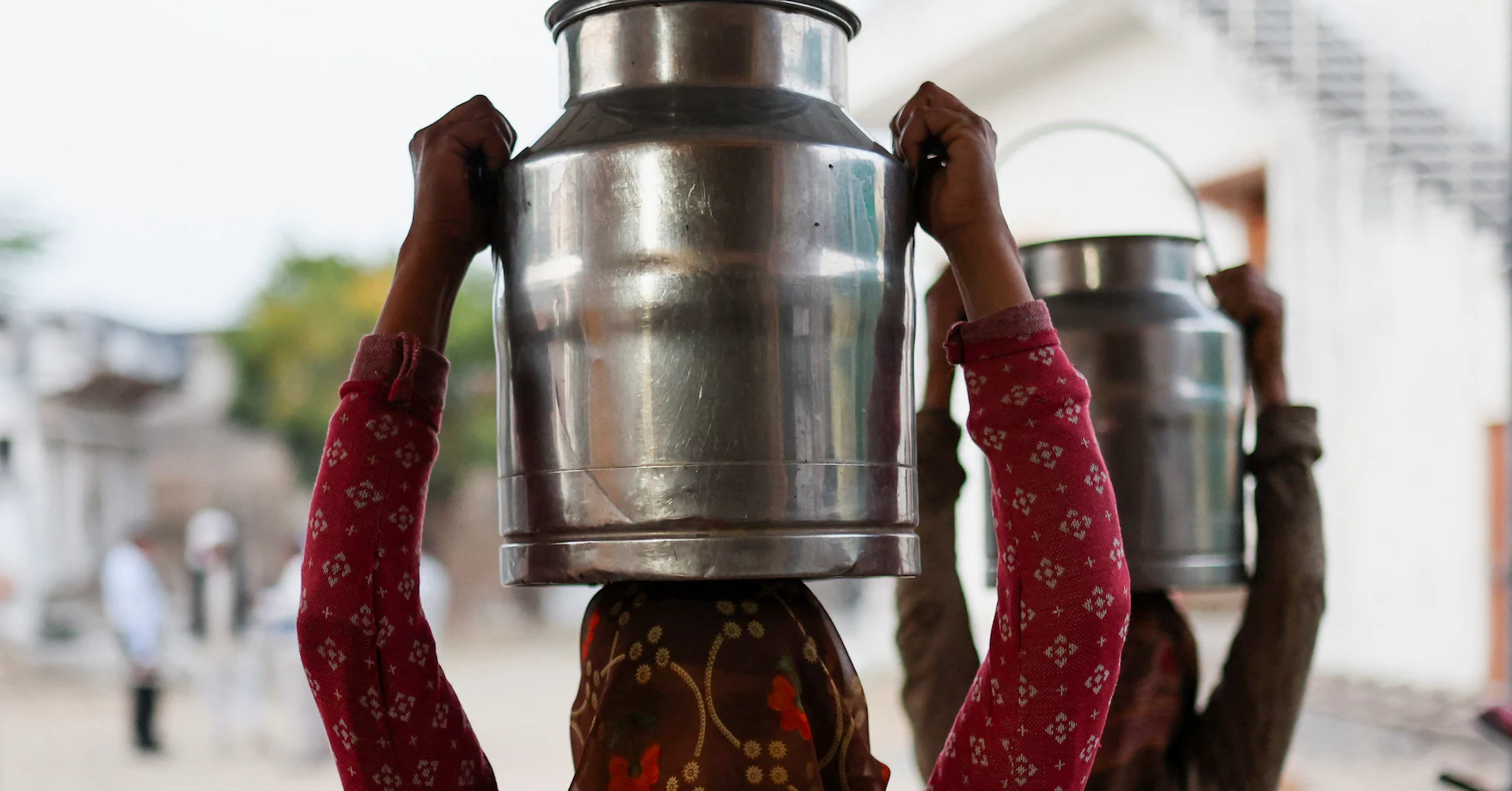Copyright Reuters

October 27 - “Cooperatives,” said U.N. secretary-general Antonio Guterres last year, “demonstrate the importance of standing together to forge solutions to global challenges”. Guterres was speaking at the official opening of the 2025 U.N. International Year of Cooperatives, held in India, where over the last 55 years the cooperative model has transformed the country from a dairy-deficient nation to the world's largest milk producer. Launched in 1970, Operation Flood – known as the “White Revolution” – brought together millions of Indian dairy farmers, many with just one or two cows or buffaloes, who organised as cooperatives. This model enabled market access and an aggregation of supply that continues to ensure system-wide stability. The oldest and largest of these cooperatives is the Gujarat Cooperative Milk Marketing Federation (GCMMF) – better known by its trading name, Amul. As of 2025, Amul handles more than 26 million litres of milk daily and exports dairy products to more than 50 countries, including the U.S., UK and Gulf nations. Amul is owned by 3.6 million milk producers – and this is where its success and resilience lie. Because it is member-owned, its business case is driven by long-term resilience over shareholder returns. It has invested in storage, logistics and infrastructure – and, by keeping margins low, has made dairy products affordable to the population while ensuring a fair return to its member-owners. These small changes cascade to communities, maintaining village viability and contributing tangibly and meaningfully to the United Nations’ Sustainable Development Goals. Addressing poverty, hunger and decent work are the obvious ones, but cooperatives also tackle gender inequality through financial independence, leadership opportunities, education and a strong community support system for its women farmers. Amul’s story of sustainable, successful business is replicated across India and beyond. During the COVID-19 pandemic, when many milk producers reduced intakes or cancelled farm-gate contracts due to hospitality closures, the UK’s First Milk dairy cooperative continued to collect and pay for all its members’ milk, and by mid-2020 announced a milk price increase. In 2022, European dairy cooperative Arla introduced a 500 million euros sustainability incentive for its farmer-owners. Integrating economic and social incentives with sustainability goals is not unique to cooperatives; their distinction is in their ability to engage with multiple stakeholders – growers, processors, distributors, retailers – and how they involve their member-owners in discussions and decisions that impact lives and communities beyond the bottom line. This happens effectively, at scale, nationally and internationally. Ocean Spray, whose members comprise thousands of cranberry and grapefruit growers in North America, lobbied around environmental practices, leading to industry-wide adoption of sustainability frameworks, including the Farm Sustainability Assessment (FSA). Similar action by the Co-op Group, the UK’s largest consumer cooperative, contributed to the implementation of mandatory carbon reporting for businesses listed on the London Stock Exchange. The cooperative movement has its roots in a group of disgruntled consumers in Rochdale, UK, who in the mid-19th century were frustrated at how basic foodstuffs were being bulked out with contaminants like limestone or sawdust to maximise private profit. They leveraged the power of coming together, of doing business fairly, and codified this in a series of values and principles to which today’s cooperatives still adhere, in the food sector, but also retail, housing, energy, health, financial services, technology and education. There are now three million cooperative businesses worldwide. The top 300 alone turn over $2.8 trillion annually. Cooperatives employ 10% of the world’s working population; they are recognised as active drivers of sustainable development, and have a seat at a number of global policy tables. But there is a problem. Cooperatives are structurally, culturally and legally different from investor-owned firms, which often leads to underrepresentation in mainstream business and policy thinking. And this means cooperatives face challenges that shareholder companies do not. The largest is access to capital. Because profits are distributed to members rather than shareholders, cooperatives find it harder to attract traditional investors, which in turn can limit their ability to scale operations, invest in technology and weather financial shocks. And this is happening in an already- competitive market. Regulatory and policy barriers are another issue, with some regions not fully recognising cooperatives, or not providing them with the tax and legal advantages given to private businesses. In July, Ecuador proposed a new law that would compel certain large savings and credit cooperatives, which make up 30% of the country’s financial ecosystem, to transform into private companies. In response to these complex challenges,Coop Exchange is building a global network of stock exchanges dedicated to cooperatives and mutuals, allowing anyone to invest with impact. And Ecuador’s proposed law was provisionally suspended by the country’s Constitutional Court in August, thanks in part to lobbying by federal bodies International Cooperative Alliance (ICA) and Cooperatives of the Americas. At the global level, a new leadership circle – the CM50 – comprising 50 CEOs from leading cooperative and mutual businesses, with a combined turnover of nearly $300 billion is lobbying to expand the cooperative and mutuals market share. The official launch of CM50 will be held in Doha, Qatar, on November 4, during the second World Summit for Social Development. It will be advocating for supportive policies, legislation and financial incentives that will address the challenges faced by cooperatives and create an enabling environment where more of these system-level transformations can be nurtured. Cooperatives hold the key to future food security, and so much more besides. It is vitally important that their full potential is unlocked. Opinions expressed are those of the author. They do not reflect the views of Reuters News, which, under the Trust Principles, is committed to integrity, independence, and freedom from bias. Ethical Corporation Magazine, a part of Reuters Professional, is owned by Thomson Reuters and operates independently of Reuters News. Jeroen Douglas is the Director General of the International Cooperative Alliance, the independent association that unites, represents and serves cooperatives worldwide. Prior to that, he was Executive Director of the Solidaridad Network, overseeing the transformation of markets towards more sustainable outcomes.



